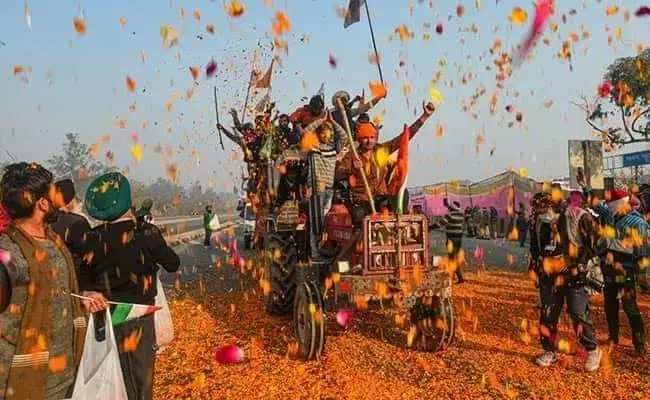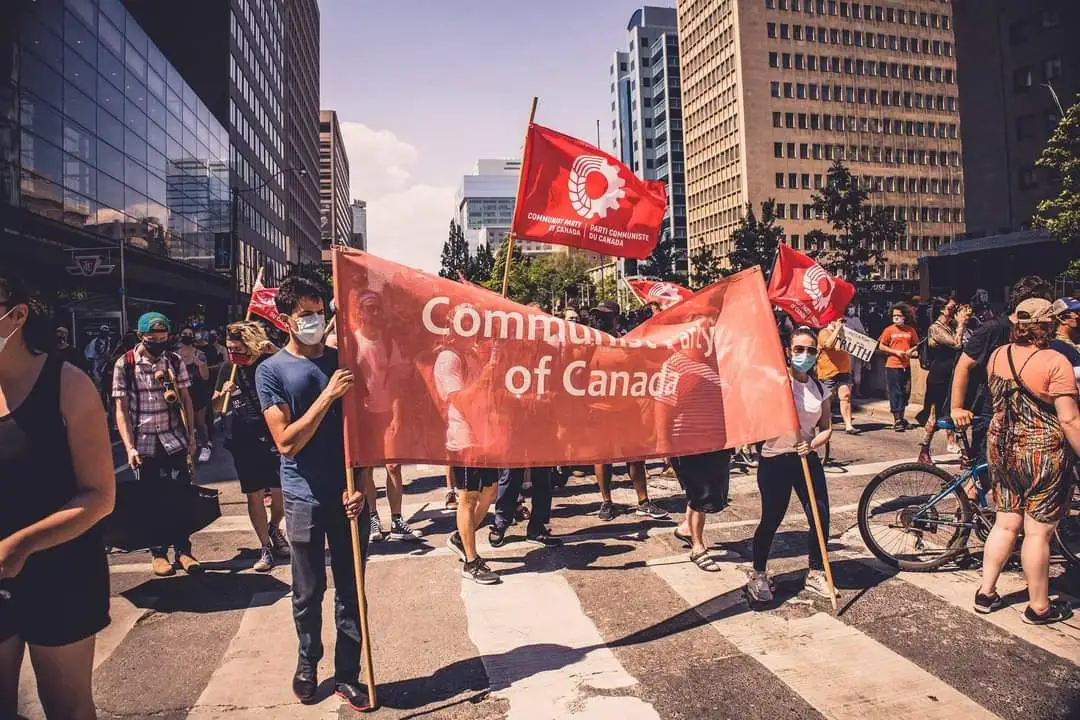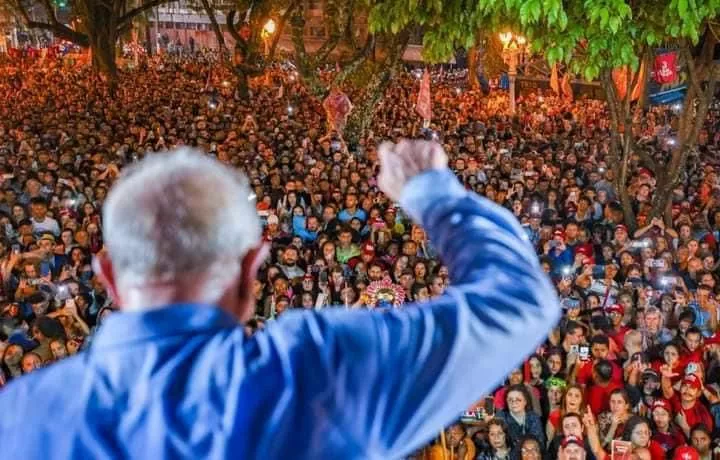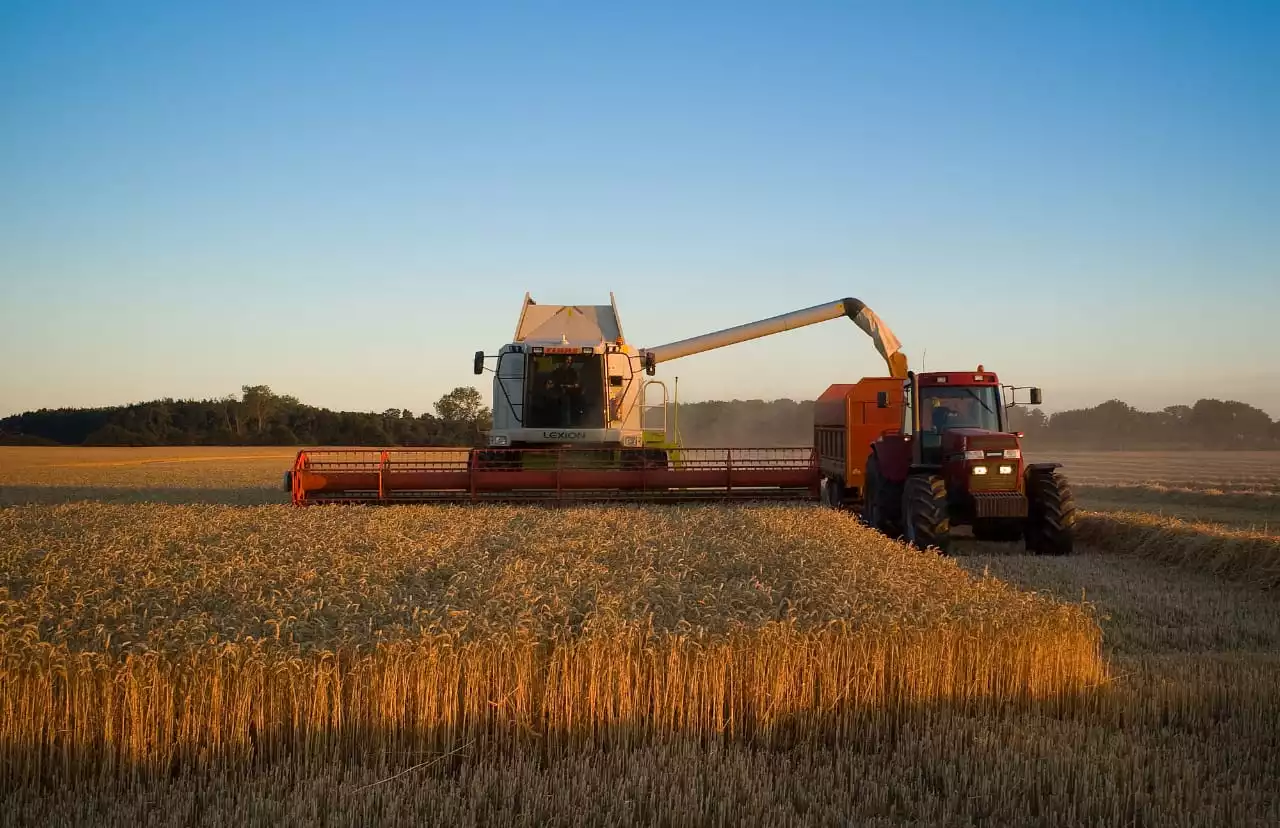PM Modi has chosen the occasion of Guru Parv to announce the withdrawal of the anti-people agricultural laws for obvious political reasons. Now the question arises: after brutal repressions, innumerable conspiracies, and false propaganda; that were cooked together to malign the movement, why has Prime Minister Modi announced the withdrawal of the laws? Is it too early to celebrate? I sincerely hope that this doesn’t end up like just another trick up his sleeves like his promise of 15 lacs in every person’s account. Hannan Mollah the general secretary of All India Kisan Sabha (AIKS), who is also a politburo member of the CPI (M) shares my skepticism. He says he would remain cautious till the legislations were scrapped in Parliament as the BJP-led government was "not trustworthy".
He further added, "There are instances where this government had said that they are withdrawing an ordinance, but nothing moved forward. We don't trust this government as it has a track record of saying something and doing something exactly opposite," Does this show the desperation of BJP and RSS in the face of the UP election? Can we call this a victory for the farmers? Will the farmers' movement end now? Let us try to understand these questions one by one.

The farmer's battle is far from over. The government is trying to clean its image as the ground reports suggest that the movement has already rendered considerable damage to its electoral campaign, and BJP now fears losing the upcoming election. After ignoring the demands of the anti-fee hike movement led by students and the nationwide movement against draconian citizenship law - the Modi government and the RSS were puffed up in the arrogance that they could destroy the unity of any movement with its communal agenda and state-controlled Godi media. And therefore, Modi government had consistently stepped up its drive to sell state-owned enterprises such as the Indian Railways, Airports, Roads, etc., without fearing any backlash. The eagerness of the government to fill up the coffers of the big capitalists went to such an extent that it continued to be blind to the demands of the farmer's movement. They even used the same divisive tactic with the very motive to break apart the unity of the ongoing farmer's movement. But the farmers and their organizations did not deviate and stood firmly on their demands. Through their relentless struggle, they exposed the nexus of the Godi media and the ruling party. The farmers were very clear that the day until the Centre withdraws the three unjust anti-farm laws and electricity amendment bill and guarantees the remunerative price for all agricultural produce; they would not stir from the protest sites. This way they were able to outplay the divisive politics of the ruling party. The farmer's movement has shown that if people stick to the demands that actually affect the lives of the common people, like the hike in petrol price, unemployment, inflation etcetera, the divisive and communal politics of the ruling party can be defeated.


It was under the increasing pressure of the farmer's movement that the ruling party has now realized that people are angry, and it will be difficult for the BJP and the RSS to go to these farmers for their election campaign, if they continue to foolishly talk in favour of the farm laws. On several occasions in the last few months, BJP MPs and MLAs found themselves in an uncomfortable situation when they tried to address farmers in their villages. The ruling party saw this as a severe blow to their politics which is communal and pro-corporate. There was also a sense of unrest among the rural and urban middle class that form the social base of BJP and RSS. Such supporters were also advising their grassroots leaders, especially the RSS preachers, to withdraw the farm law. And now by doing so, BJP hopes to tilt the equation in their favor. Now they want to use this as the masterstroke of the prime minister that will help them revitalize their electoral campaign. BJP is in the hope of redeeming its lost image with the withdrawal of the anti-farm laws. But, this dream of BJP will not come true as the farmers will never forget the atrocities that were done to them. The farmers understood that by dividing them on the religious grounds, the ruling dispensation will break their unity and will hand over their land and means of livelihood to the big capital. This is one of the biggest victory of the farmer movement because the communal virus has been neutralized to some extent by this movement.
The ruling party now very well comprehends that their brazen and open support of the big capital has been exposed, and it can prove lethal for them in the upcoming elections. They also understand that farmers' unity coupled with resentment and unrest among the unemployed youth can become Achilles' heel. So, we can see that the withdrawal of the farm laws is not because of the Indian prime minister's kind-heartedness but rather this withdrawal is a desperate move to control the damage.
The fascist face and the class character of the government have been exposed now. Farmers' organisations are skeptical about this announcement as it is merely an announcement, and laws are yet to be revoked through the parliamentary procedure. Furthermore, Prime Minister has not even announced the withdrawal of Electricity Amedment Bill and has not guaranteed remunerative prices on all agricultural products. These two demands are also very important for the farmers. If government remains mute on these demands this could become an important point of conflict in the days ahead.

The conflict between small capital and big capital is likely to increase in the future. The farmers movement has already created fertile ground for other movements in the last 15 months, and peasant leaders are now talking about the unity of students, workers, and other oppressed sections of the society. The contradiction of small and big capital has risen to such an extent that small capital is being forced to fight tooth and nail for its survival. One has to bear in mind that the survival of small capital is next to impossible. Fashioning a just, favorable society which benefits workers and farmers will be impossible without the socialization of means of production. Amid all these developments, the most important question is whether the working class is ready to exploit this contradiction of the ruling class and organize itself to take their movement to the next level?






